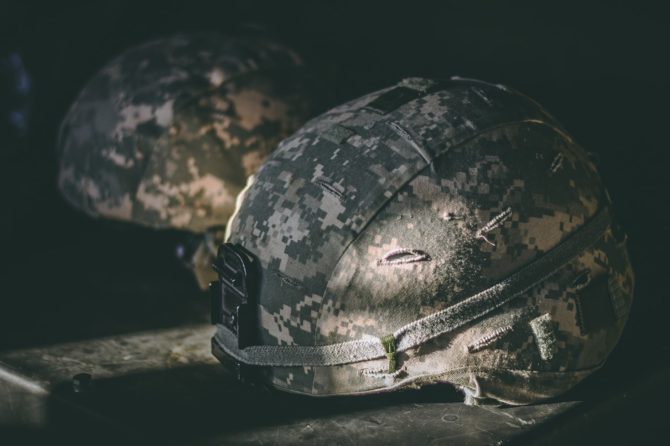
Gambling Addiction Linked to Active Duty Military Personnel
Military gambling addiction is something that should be discussed. The rate of gambling problems among veterans and active-duty military personnel are glaringly high. Statistics point to the rate of pathological gambling amongst military personnel as nearly a quarter of all armed service members and their domestic partners.
Gambling addiction is a treatable disease but is a very real problem in our society, one that has affected the military community in a destructive way. The stresses of deployment along with the unique culture of the military can lead to depression, mental health issues, substance use disorder, and even suicide, and it’s important to understand the root of the causes of addiction amongst our armed service members so as to better address the problem at hand.
Why is Gambling Addiction Prevalent in the Military?
Military service members are vulnerable to problem gambling largely due to the many readily accessible gambling opportunities at hand. It’s estimated that over 36,000 active-duty members have gambling problems.
These rates are significantly higher than the general population and can lead to higher rates of bankruptcy, domestic violence, and co-occurring substance abuse and mental health disorders. Nearly 3,000 slot machines are available to members of the Armed Forces and their families at military installations overseas, generating up to $100 million in profits, none of which are dedicated to programs designed to prevent or treat gambling addiction.
Facets of military culture glorify gambling while stigmatizing behavior health treatment to curb addictions. Boredom, loneliness, location, lack of money, lots of time to pass with limited access to entertainment along with the thrill of the possibility of winning big all contribute to problem gambling in the military community. A report from the National Council on Problem Gambling suggests that the military does not actively encourage gambling, but it does influence it to a certain extent due to the high-stress levels and urge for members to turn to a release (whether it be gambling, drugs, alcohol, or another destructive escape mechanism).
Nearly 40% of those sampled in the report admitted to having gambled on a military base, while over 10% said they did so over 10 times. 27% cited having a family member with a gambling problem and 47% reported having a friend with the same issue. Nearly 20% had filed for bankruptcy with 40% of those filings attributed to gambling problems.
Difficulty readjusting to civilian life and post-traumatic stress disorder are two commonly cited reasons for veterans using gambling as a coping mechanism. Finding work in uncertain economical times and flashbacks of time serving can result in serious addictions of any kind.
What is Being Done to Curb this Problem?
A bipartisan group of lawmakers is pushing for screening for gambling problems among active-duty troops. If approved, Defense Department officials would have the power to update regulations and guidance to explicitly include gambling disorders and develop new assistance programs.
Currently, the military does not provide annual screenings and has no way to indicate susceptibility to gambling problems as it does for other disorders involving addiction. The lawmakers are framing this as a national security issue, as troops and veterans with excessive gambling debts could face difficulties obtaining security clearances due to fears about their financial situation leaving them more susceptible to blackmail.
“There exists an ethical and economic obligation to protect our troops by preventing gambling addiction,” said Keith Whyte, the executive director of the Nationa Council on Problem Gambling. “Problem gambling is a critical issue that is far too often overlooked.”
What Help is Available?
Problem gambling can have serious effects on active members of the military and can damage their career and harm their on-duty focus. It can lead to a loss of productivity, rank, or even discharge.
Raising awareness of gambling addiction and educating the public about treatments available is absolutely paramount to tackling this issue. The addictions of our Armed Service members cannot go unnoticed. Here at Windward Way, we are well-equipped to serve you or someone you love on the road to recovery. Our addiction treatment programs deal with each person individually and are suited to your unique needs.
You can start your new life right away, today. Here’s how you can acknowledge that gambling has become a problem in your life:
- Realize that you can make a change
- Make a list of reasons why it’s better not to gamble when you feel the urge to do so
- Write down a list of things – including people and places – that make you want to gamble, along with ways that you can avoid them
- Practice mindfulness and relaxation exercises such as deep breathing and meditation that will help you manage stress and feelings
- Keep a list of the activities that you enjoy doing instead of gambling
- Spend quality time with supportive people in your life who do not gamble
You may want to talk to your family and friends about what you are going through. If you know that you need to stop gambling but yet haven’t discovered the tools to deal with the process, we are here to help you begin the journey. We’ll stand beside you every step of the way. Reach out today by giving us a call at (855) 491-7694.
Leave a reply